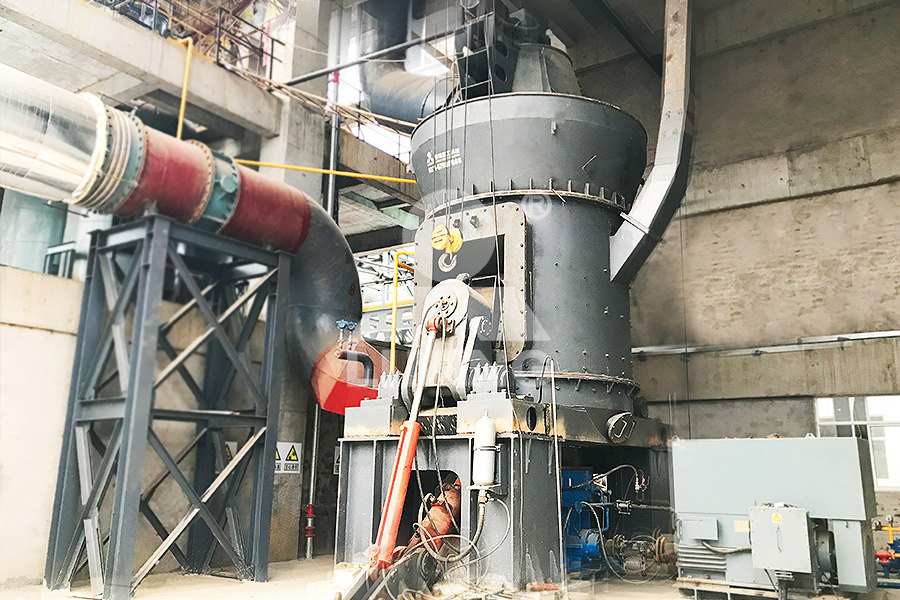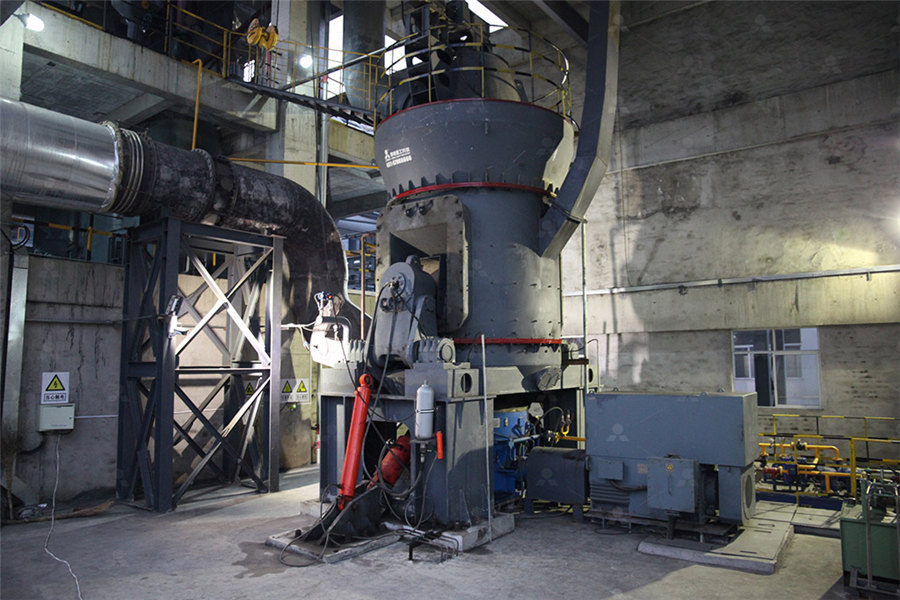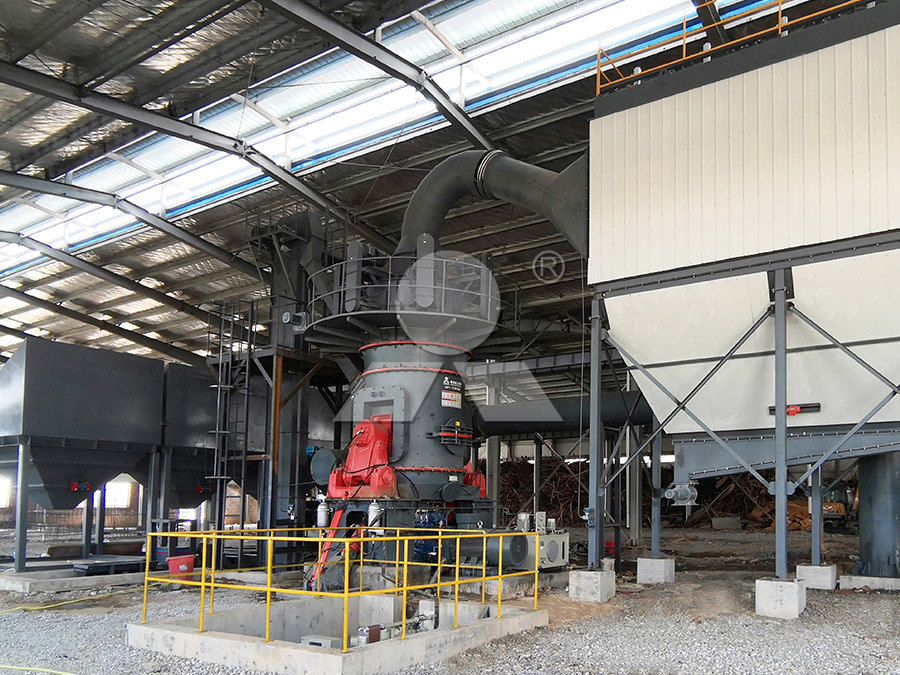
Stone hard carbonate Should calcium system use vertical shaft or gypsum
.jpg)
Comparative Study of Calcium Carbonates and
The aim of this study is to contribute to understanding the mechanisms underlying the formation of biologically relevant minerals by comparing the properties of solid phases formed in calcium phosphate (CaP) or calcium carbonate (CaCO 3) 1996年1月1日 Calcium carbonate provides a reactive surface for adsorption and pre cipitation reactions, for example, of phosphate (Boischot et al, 1950; Talibudeen Arambarri, 1964; Amer et al(PDF) Carbonate and Gypsum ResearchGate2018年1月1日 Carbonate rocks, consisting mainly of the minerals calcite (CaCO 3) and dolomite [CaMg (CO 3) 2], are the second most abundant class of sedimentary rocks, after terrigenous Carbonate Minerals and the CO2Carbonic Acid System2022年4月1日 During early diagenesis, secondary pores can develop when carbonate reservoir and gypsumsalt rock are interbedded Calcium ions in the reaction system can inhibit the Effects of gypsumsalt rock on mineral transformations in a

Carbonate and Gypsum Loeppert 1996 SSSA Book
1996年1月1日 This chapter discusses the procedures for the determination of quantity, reactivity and equilibrium relations of the carbonate minerals and gypsum Inorganic carbonate in soil 2020年4月5日 Here, we transformed gypsum, CaSO 4 2H 2 O, into vaterite, CaCO 3, by sonication We studied conversion, phase compositions and morphologies of carbonation CO2 sequestration: high conversion of gypsum into CaCO3 2023年4月1日 Calcium Looping can be a suitable technology to address the CO 2 capture from disperse flue gas sources, including shipping, by decoupling carbonation and calcination steps Countercurrent moving bed carbonator for CO2 capture in The assessment of the microstructure and pore structure of the stone by Petrography is a key aspect in assessing the suitability of a stone for use in a vertical kiln Petrographic analysis can be utilised in interpreting decrepitation A novel approach in the assessment of

Formation of CaCO3 Deposits on Hard Surfaces
2013年4月18日 We have studied nucleation and crystal growth of calcium carbonate on hard surfaces, ie stainless steel and silica, at different temperatures, in relation to the corresponding bulk processes, using scanning 2017年8月25日 A new generation of energy saving shaft calciner technology with higher capacity and power generation system has been developed recently and illustrated in this NEW GENERATION OF VERTICAL SHAFT CALCINER The use of this complete set of criteria offers valuable information on the suitability of a carbonate rock for use in a shaft kiln These criteria can be applied during the decisionmaking process in determining whether the stone can be A novel approach in the assessment of 2021年3月3日 Cement is produced by a hightemperature (about 1500 °C) reaction in a rotary kiln of carefully proportioned and blended ratios of lime (CaO), silica (SiO 2), alumina (Al 2 O 3), and iron oxide (Fe 2 O 3)The production of cement is a chemical process requiring an accurate blend of the previously cited four key organic oxides and the limitation of several undesirable Cement SpringerLink
.jpg)
Limestone: Calcium Carbonate (CaCO3) Uses,
Calcium Carbonate Formula It is a chemical compound with the chemical formula CaCO 3; It is a white insoluble powderlike substance which occurs naturally in minerals, chalk, marble, limestone, calcite, shells, pearl, etc; Medicinally, it is 2023年10月21日 Limestone is a sedimentary rock primarily composed of calcium carbonate (CaCO3) in the form of mineral calcite or aragoniteIt is one of the most common and widely distributed rocks on Earth, with a wide range of uses in various industries and natural settings Limestone forms through the accumulation and compaction of marine organisms, primarily the Limestone Types, Properties, Composition, Formation, Uses2024年11月13日 Usually found with other evaporite and carbonate minerals, such as anhydrite, calcite, dolomite, borax, and halite, in altered carbonate rocks, gypsum may also be found with sulfur and pyrite In ground water systems, gypsum can also form at hot springs or as cave deposits, especially in areas where groundwater has passed through evaporite Gypsum Common Minerals2023年12月26日 Chemical Properties of CaCO 3 The chemical properties of calcium carbonate can be visualized in terms of chemical reaction it undergoes Let's have glance on the chemical reactions of CaCO 3 Reaction of CaCO 3 with Hydrochloric Acid (HCl) Calcium Carbonate on reacting with HCl gives calcium chloride salt and carbon dioxide gas which causes effervesenceCalcium Carbonate(CaCO3) Limestone Formula, Structure,

Calcium Carbonate Grinding Mill Powder Modify SBM
2022年5月5日 1503000 mesh calcium carbonate powder can use SBM calcium carbonate ultrafine grinding mill They can produce ultrafine powder, environmental protection, and energysaving, convenient maintenance, stable operation, long service life, intelligent automation, simple and easy operation2024年1月16日 You should use gypsum when you need to reduce your soil’s salinity (sodium content) A lime application is appropriate if your soil’s pH level is too acidic and you want to increase the pH The most clear and accurate way to understand if your lawn could benefit from an application of lime, gypsum, or other soil amendments is to pay the $20 Lime vs Gypsum Comparison (differences, and what to use 1 天前 Crystal System: Gypsum crystals belong to the monoclinic crystal system This crystal structure has three unequal axes, with one angle between axes being non90 degrees When scratched against a hard surface like unglazed porcelain, gypsum leaves a white streak, regardless of its overall color Hardness: Gypsum is a very soft mineral Gypsum: Properties, Uses, Formation, Types – Geology In2021年3月3日 Gypsum is a very important binding agent used as building material since ancient times The earliest known use of gypsum as a building material in construction and decoration in the form of plaster and alabaster was in Anatolia about 6000 BC Gypsum has been found on surfaces used as mortars within the great pyramids in EgyptGypsum Products SpringerLink

Schematic presentation of vertical shaft kiln; (a)
Furthermore, the solar calcination of dolomite was efficacious for obtaining a high degree of decarbonation, as inferred from the value of loss on ignition for solar CD in Table 2 (which is non 2016年7月3日 Gypsum is a naturally occurring stone, a metallic salt of calcium It commonly forms as an evaporite from the dissolution of limestone by exposure to sulphuric Patrick Webb continues his Plaster 101 blog with a discussion of Gypsum: A Naturally Occurring Stone2012年11月17日 h = heat transfer coefficient between the outer surface of carbonate sample and the surrounding r 0 = initial radius of carbonate particle H = moalr heat of decomposition of calcium carbonate T = Temperature of bulk gas phase The rate of calcinations is given by (Hills 1968) [ 7 ] : (3) Where: n = rate of decomposition of carbonateFUNDAMENTAL APPROACH TO THE DESIGN OF 1 天前 The earliest use of gypsum plaster dates to about 8000 BCE with the discovery of its use in Anatolia (Turkey) Gypsum plaster was used as early as 7000 BCE as a construction material in Egypt Gypsum was first discovered and utilized in North America in Nova Scotia, Canada in 1770 Surface exposures of gypsum were dug and used on agricultural Infrastructure and Construction Materials Guide — Gypsum

Karst Landscapes: Topographies Sculptured by Dissolution of
2015年1月1日 The acidity in the water tackles the CaCO 3 minerals of the bedrock particularly along rock surfaces of joints or fractures, forming calcium bicarbonate or calcium hydrogen carbonate Ca(HCO 3) 2 In contrast to calcite, the calcium bicarbonate is watersoluble and is removed with the water The chemical reaction describing limestone dissolution is:2021年3月3日 Lime is the least expensive and one of the most heavily used alkali in the world, being essential to our society It is a nonhydraulic binder, excepting the socalled hydraulic lime, meaning that it will not set under waterFor this reason, lime is sometimes called air lime since it hardens on exposure to air It was used for thousands of years in masonry mortars to bind the Lime SpringerLink2022年11月21日 An innovative method using a methanol solution of barium hydroxideurea as a protective agent was investigated for the conservation of stone artifacts with harmful gypsum weathering crusts In this method, the methanol solution of barium hydroxideurea and water were introduced into the gypsum crust in sequence by surface spraying By doing so, the harmful A Novel Protection Method for Carbonate Stone Artifacts with Gypsum 2017年8月25日 world, while the vertical shaft calciners are used in most Chinese CPC plants Vertical calciners are stationary calcining furnaces The technical and economical comparisons between the rotary calcining and the old vertical shaft calcining technologies are illustrated in the Table 1 There are many advantages for rotary calciners: larger capacity,NEW GENERATION OF VERTICAL SHAFT CALCINER

Lime Vs Gypsum: Which Is Best For Your Soil?
2024年7月19日 Lime, also known as agricultural lime or calcium carbonate, is a soil amendment that is primarily used to raise soil pH levels It is commonly used in acidic soils where low pH levels can hinder plant nutrient availability and microbial activity When should I use Gypsum? Gypsum is generally used in soils that have high levels of clay or 2018年5月23日 Limes work when calcium carbonate is dissolved by acids in the soil water and splits into calcium ions and carbonate ions (see figure below) Carbonate combines with hydrogen ions (which are the cause of soil acidity) forming carbon dioxide and water All neutralising is performed by carbonate, so the calcium applied in lime does not affect HOW LIME OR GYPSUM CAN IMPROVE pH OR SOIL 2023年11月24日 Chemical Composition of sandstone usually quartz framework grains are the dominant mineral in clastic sedimentary rocksBecause of they have exceptional physical properties such as hardness and chemical Sandstone Composition, Properties, Formation, 2018年1月1日 Cacarbonates are primarily inorganic and biogenic products of the marine environment CaCO 3 is a first precipitate in an evaporative sequence of seawater, and later precipitates are Na and K chlorides and sulfates In continental waters, however, the anions HCO 3 − and CO 3 2− are usually more abundant than Cl − and SO 4 2−, and the minerals Carbonate Minerals and the CO2Carbonic Acid System

SAFETY DATA SHEET (SDS) : GYPSUM Martin Marietta
2021年7月6日 Gypsum Gypsum Calcium(II) sulfate dihydrate, Gypsum stone, Hydrated calcium sulfate, Mineral white RECOMMENDED USE AND RESTRICTION ON USE Used for construction purposes This product is not intended or designed for and should not be used as an abrasive blasting medium or for foundry applications MANUFACTURER/SUPPLIER INFORMATION2023年8月31日 This article aims to investigate the feasibility of using discrete element software EDEM 20220 to simulate the trajectory of artificial marble patterns in a dual horizontal shaft mixerFeasibility Analysis of Calcium Carbonate Particle Trajectory 2000年4月1日 Anhydrite, when dissolved, forms a solution of calcium sulfate, which at common temperatures and pressures is in equilibrium with the solid phase of gypsum, but not with anhydrite(PDF) Dissolution and conversions of gypsum and anhydrite2024年1月1日 Karst cannot be produced solely by a significant amount of rock solubility Rock structure and lithology are also significant factors Karst is often poorly developed in soluble rocks with extremely high primary porosity (30–50 %)A region with unique hydrology and landforms resulting from a mix of high rock solubility and welldeveloped secondary (fracture) porosity Karst topography: Formation, processes, characteristics,
.jpg)
Recovery of sulphur and calcium carbonate from waste gypsum
2007年10月1日 Recov ery of sulphur and calcium carbonate from waste gypsum NR Nengovhela 1 *, CA Strydom 2 , JP M aree 3 , S Oosth uizen 4 and DJ Th eron 4 1 Depar tment of Chemis try, Universit y of Pretoria 2021年5月19日 Calcium carbonate is the most abundant calcium mineral Plants get their calcium from calcium carbonate by biological activity and root exudates Gypsum’s calcium solubility is far less than what the plant needs Calcium carbonate does not affect pH to the extent that other things do (like irrigation water)CaC03 or Gypsum, which should you use? GE Turf2024年11月9日 Adhesives: Calcium carbonate is used in the manufacture of various adhesives, such as white cement and gypsum, where it acts as a filler and enhances the bonding strength Paints: Calcium carbonate is used in the paint industry as a whitening and filling agent, giving paints a white color and increasing their ability to cover the surfaceCalcium Carbonate in the Construction Globe Stone Hills2023年10月26日 Explore Ground Calcium Carbonate: Understand Ground Calcium Carbonate From Six Perspectives Gain comprehensive insights into this essential mineral and its diverse applications Discover the significance of Ground Calcium Carbonate from various anglesUnderstand Ground Calcium Carbonate From Six Perspectives
.jpg)
A novel approach in the assessment of
The use of this complete set of criteria offers valuable information on the suitability of a carbonate rock for use in a shaft kiln These criteria can be applied during the decisionmaking process in determining whether the stone can be 2021年3月3日 Cement is produced by a hightemperature (about 1500 °C) reaction in a rotary kiln of carefully proportioned and blended ratios of lime (CaO), silica (SiO 2), alumina (Al 2 O 3), and iron oxide (Fe 2 O 3)The production of cement is a chemical process requiring an accurate blend of the previously cited four key organic oxides and the limitation of several undesirable Cement SpringerLinkCalcium Carbonate Formula It is a chemical compound with the chemical formula CaCO 3; It is a white insoluble powderlike substance which occurs naturally in minerals, chalk, marble, limestone, calcite, shells, pearl, etc; Medicinally, it is Limestone: Calcium Carbonate (CaCO3) Uses, 2023年10月21日 Limestone is a sedimentary rock primarily composed of calcium carbonate (CaCO3) in the form of mineral calcite or aragoniteIt is one of the most common and widely distributed rocks on Earth, with a wide range of uses in various industries and natural settings Limestone forms through the accumulation and compaction of marine organisms, primarily the Limestone Types, Properties, Composition, Formation, Uses

Gypsum Common Minerals
2024年11月13日 Usually found with other evaporite and carbonate minerals, such as anhydrite, calcite, dolomite, borax, and halite, in altered carbonate rocks, gypsum may also be found with sulfur and pyrite In ground water systems, gypsum can also form at hot springs or as cave deposits, especially in areas where groundwater has passed through evaporite 2023年12月26日 Chemical Properties of CaCO 3 The chemical properties of calcium carbonate can be visualized in terms of chemical reaction it undergoes Let's have glance on the chemical reactions of CaCO 3 Reaction of CaCO 3 with Hydrochloric Acid (HCl) Calcium Carbonate on reacting with HCl gives calcium chloride salt and carbon dioxide gas which causes effervesenceCalcium Carbonate(CaCO3) Limestone Formula, Structure, 2022年5月5日 1503000 mesh calcium carbonate powder can use SBM calcium carbonate ultrafine grinding mill They can produce ultrafine powder, environmental protection, and energysaving, convenient maintenance, stable operation, long service life, intelligent automation, simple and easy operationCalcium Carbonate Grinding Mill Powder Modify SBM 2024年1月16日 You should use gypsum when you need to reduce your soil’s salinity (sodium content) A lime application is appropriate if your soil’s pH level is too acidic and you want to increase the pH The most clear and accurate way to understand if your lawn could benefit from an application of lime, gypsum, or other soil amendments is to pay the $20 Lime vs Gypsum Comparison (differences, and what to use
.jpg)
Gypsum: Properties, Uses, Formation, Types – Geology In
1 天前 Crystal System: Gypsum crystals belong to the monoclinic crystal system This crystal structure has three unequal axes, with one angle between axes being non90 degrees When scratched against a hard surface like unglazed porcelain, gypsum leaves a white streak, regardless of its overall color Hardness: Gypsum is a very soft mineral 2021年3月3日 Gypsum is a very important binding agent used as building material since ancient times The earliest known use of gypsum as a building material in construction and decoration in the form of plaster and alabaster was in Anatolia about 6000 BC Gypsum has been found on surfaces used as mortars within the great pyramids in EgyptGypsum Products SpringerLink













